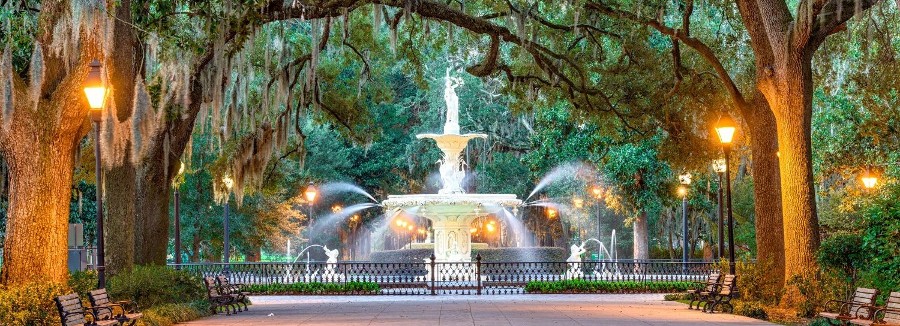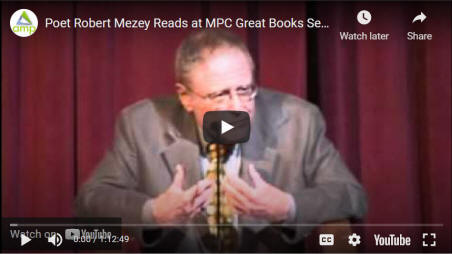
Robert Mezey

When
Robert Mezey’s celebrated and award-winning “Collected
Poems” appeared in 2001 from The University of Arkansas Press, Poet
Harry Thomas wrote about it for the Fall issue of Harvard Review calling
Mezey “an exemplary, brave, and excellent poet.” He goes on to say,
“Mezey’s three hundred pages constitute a sort of one-man compendium of
meters and forms. The book contains sonnets (Italian and English),
epigrams, rhymed couplets, rhyming quatrains, and rhyming stanzas of
various sizes, light-verse rhyme fests, clerihews, Americanized ghazals,
a metrical haiku, and more. As for meter, Mezey may well know more about
the modes of making a line than any poet now writing.”
Thomas goes on to describe how Mezey’s
faultless ear and skill produced a decade of Borges translations that
have an amazing “authority as English poems.” A posthumous book, “The
Gathering Vacancy,” is waiting to be published next year. His poems you
are reading today were published in his book, “The Door Standing Open,
New and Selected Poems.” London, Oxford University Press, 1970.
Last Words
To John Lawrence Simpson. 1897-1969
Like men who meet
for the first time from opposite ends of the
earth,
we never talked much.
You sat
At the kitchen table, in a chair
only the smallest children dared to sit in,
yelling at your sons or telling some sly story,
or silent, looking out the window,
and I sat next to you
with my hands folded,
staring at your daughter, barely listening,
a writer of books, a poet.
Now what was faithful
most of a century to the earth,
and the darkness of earth
is preparing to become the earth,
and what was faithful to the light
is turning painfully into light.
Now I want to say
What I have never said.
Old man, sometimes I felt like a child
Sitting next to you.
I watched your hands
that were strong and twisted as if pulled from the
earth
and the blue smoke curling upward in the silence
and felt like a child.
There were many things I did not understand.
How easily fooled I was
by your fierceness, your long silences,
your rants against communism.
How easily I assumed
your distaste for my long hair and my long face
and my long history of childhood.
Still, I listened to your stories
and I remember well
the mules straining in the darkness, the bitter
thin air,
the mountain road covered with snow, the huge logs
covered with snow,
and summer nights in the old days,
wild girls riding bareback over the foothills,
sisters of rustlers, going to a dance,
and the old Harley
hitting a big hole and going down thrashing and
burning in the gravel,
and I remember what I saw,
long after midnight in the cold shed,
the long rip in the cow’s side,
the silent man with his arm
plunged in up to his shoulder, the cow’s head
secured in the iron stanchions, her eyes
black and enormous with agony,
the cloud of her breath, the cloud of mine,
no sound, blood everywhere,
I remember what I saw in your eyes.
And I see
drifting through the smoke and fog
the cool sun—
through the wreckage of years, cars,
dead pigeons, dead wives,
good deals and foolish charity,
money made and lost,
made again and lost again,
a dead baby, a dead son growing rich in the east,
the leaves dying on the vine,
the dying sun,
through death, divorce, and dull disaster,
a young and tender spirit.
The road is paved,
the hole filled in,
the girls lie under the stones of Academy Cemetery
many years.
All the old mountain men
Gone for good into the mountains,
the sound of their laughter growing very faint,
and the wind keeps blowing.
New Year’s Eve in Solitude
Night comes to the man who can
pray
only on paper.
He disappears into paper
with his old mouth shaped to say no
and his voice is so tiny
in all these miles of silence and cold grass.
As I write
the fog has eaten away the mountains
the princely hills and the fields
everything but this house
and this hand
and the few feet of light it throws out against
the dark.
I try to talk
to the drunken god who sleeps in my arms and legs
tell him god knows what
but what’s the use he won’t listen
or else he listens in his sleep
and the dead listen in theirs
up on the hill
up past the drifting
iron gates the dead leaves
listen and the frozen
water pipes.
And at last I know what to ask.
I know what I really want
and it hurts me.
Nothing any more against the darkness,
nothing against the night,
nothing
in which the bright child is silent and shines
very dimly
cover me with your arms,
give me your breast,
that will make me forgetful and slow
so I can join him in sleep—
Hurry down now good mother, give me
my life again
in this hand that lives but a moment and is
immortal,
cover my eyes and I will see them,
those companions clothed head to foot in tiny
fires
that I said goodbye to when I first opened my
eyes.
Give me my robes of earth
and my black milk
I Am Here
For Naomi, later
I want to speak to you while I
can,
In your fourth year before you can well
understand,
before this river
white and remorseless carries me away.
You asked me to tell you about death.
I said nothing, I said
This is your father,
this is your father like water,
like fate,
like a feather circling down.
And I am my own daughter
swimming out,
a phosphorescence on the dark face of the surf.
A boat circling on the darkness.
2
She opens her eyes under
water. The sun climbs.
She runs, she decapitates flowers.
The grass sparkles. Her little brother laughs.
She serves meals to friends no one has seen.
She races her tricycle in circles.
I come home. The sun falls.
3
You eat all day.
You want to be big. “Look how big!”
You cry,
stretching your arms to heaven,
your eyes stretched
by all the half terrified joy of being in motion.
The big move clumsily, little love,
as far as I can see.
They break everything
And then they break,
and a pool of decayed light sinks back into the
earth.
Writing these words tonight,
I am coming to the end
Of my 35th year. It means nothing to you,
but I rejoice and I am terrified
and I feel something I can never describe.
They are so much the same,
So much the sun blazing on the edge of a knife . .
.
We are little children
and my face has already entered the mist.
4
I hear you cry out in the
blackened theatre of night.
I go in and hold you in my arms
And rock you, watching
your lips working,
your closed eyelids bulge with the nightly vision.
5
I get lost, too, Naomi,
in a forest that suddenly rises
from behind my breastbone on a night of no moon.
Stars hang in the black branches,
great, small,
glittering like insoluble crimes,
ceaselessly calling me
toward that thick darkness under the trees.
I turn, sobbing, to run, but it is everywhere.
6
I wanted to give you something
But always give you something else.
What do you call it when it is underground
like a cold spring in the blood,
when it is a poem written out of naked fear
and love which is never enough,
when it is my face, Naomi,
my face
from which the darkness streams forth?
The petal falls,
The skin crumbles into dirt,
Consciousness likewise crumbles
and this is one road the squirrel will not cross
again.
I was here, Naomi,
I will never be back
but I was here,
I was here with you and your brother.
How Much
Longer?
Day after day after day it goes on
And no one knows how to stop it or escape.
Friends come bearing impersonal agonies,
I hear our hopeless laughter; I watch us
drink.
War is in everyone’s eyes, war is made
In the kitchen, in the bedroom, in the car at
stoplights.
A marriage collapses like a burning house
And the other houses smolder. Old friends
make their way in silence. Students stare
At their teachers, and suddenly feel afraid.
The old people are terrified like cattle
rolling their eyes and bellowing,
half-believing
some half-forgotten poem, or else come out
with their hearts on fire, alive in the last
days.
Small children roam the neighborhoods armed
With submachine guns, gas masks and riot
sticks.
Excavations are made in us and slowly
we are filled in with used-up things: knives
too dull to cut bread with, bombs that failed
to go off,
cats smashed on the highway, broken pencils,
slivers of soap, hair, gristle, old TV sets
that hum and stare out blindly like the
insane.
Bridges kneel, the cities billow and plunge
like horses in their smoke, the tall buildings
open their hysterical burning eyes at night,
the leafy suburbs look up at the clouds and
tremble—
and my wife leaves her bed before dawn,
walking
the icy pasture, shrieking her grief to the
cows,
praying in tears to the softening blackness. I
hear her
outside the window, crazed, inconsolable,
and go out to fetch her. Yesterday she saw
a photograph, Naomi our little girl
in a ditch in Viet Nam, half in the water,
the rest of her, beached on the mud, was
horribly burned.
| Archive | Submissions | About |